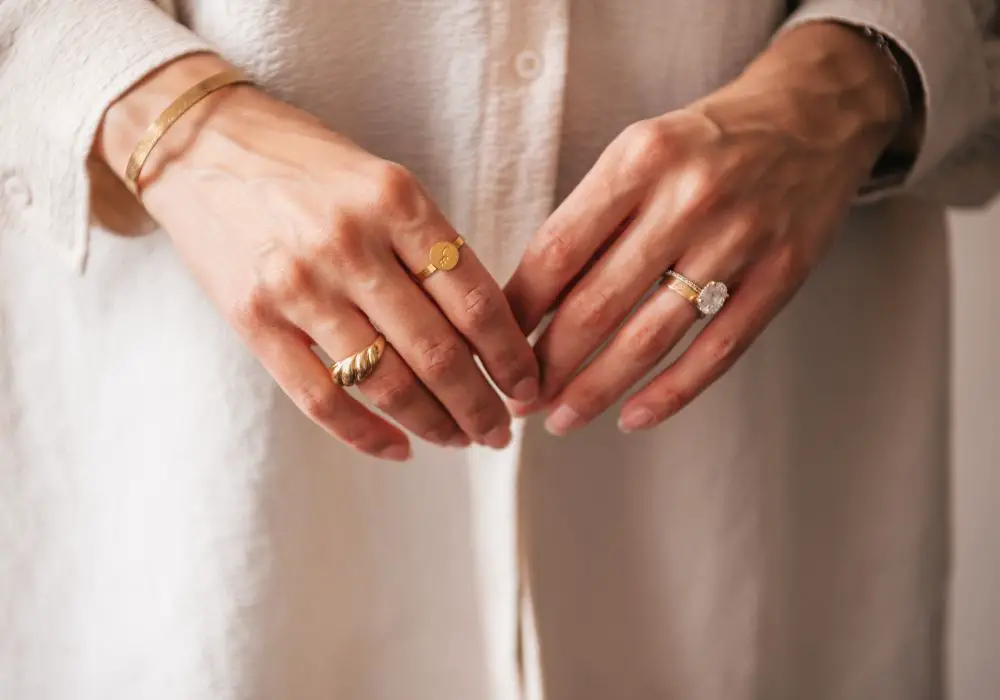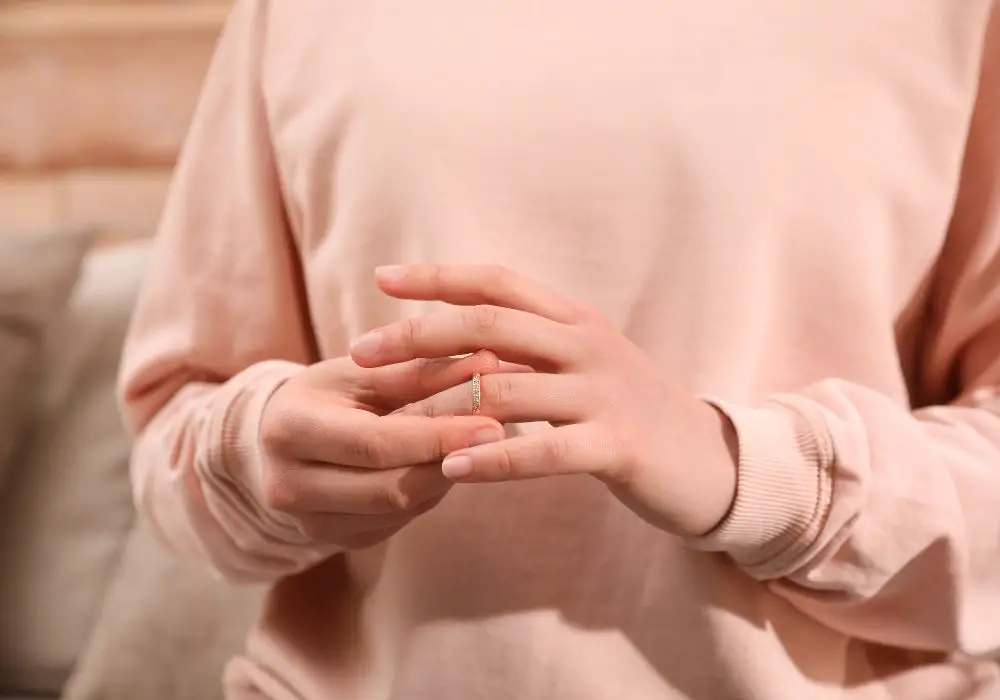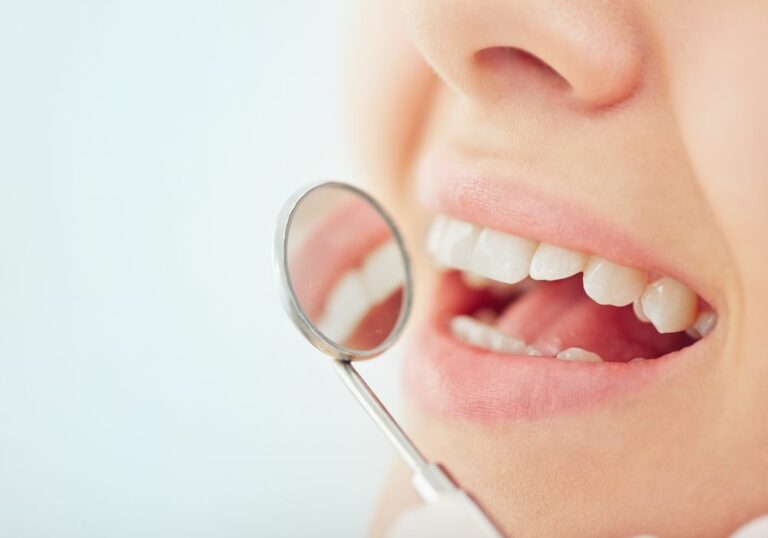Are you scheduled to have your wisdom teeth removed soon? If so, you may be wondering what you can and cannot wear during the procedure. One common question that many people have is whether or not they can wear rings during wisdom teeth removal.
The short answer is that it depends on the type of anesthesia you will be receiving. If you are going to be put under general anesthesia, you will need to remove all jewelry, including rings. This is because the anesthesiologist needs to be able to monitor your vital signs and circulation, and jewelry can interfere with this process. However, if you are only receiving local anesthesia, you may be able to keep your rings on.
It is important to note that even if you are able to wear your rings during the procedure, you may still want to remove them beforehand. This is because the surgical team may need to use instruments near your mouth, and rings can get in the way or even scratch your face. Additionally, you may experience swelling after the procedure, which can make it difficult to remove your rings.
Understanding Wisdom Teeth Removal
If you’re experiencing pain or discomfort due to your wisdom teeth, your dentist may recommend wisdom teeth removal. This is a common oral surgery procedure that involves removing one or more wisdom teeth. Wisdom teeth are the four permanent adult teeth located at the back corners of your mouth on the top and bottom.
Wisdom teeth removal is typically done by an oral surgeon or dentist and can be done in their office or a hospital setting. The procedure is usually done under local anesthesia, which means you’ll be awake but won’t feel any pain. In some cases, your dentist may recommend general anesthesia, which means you’ll be asleep during the procedure.
During the procedure, your dentist or oral surgeon will make an incision in your gum tissue to access the tooth and bone. They will then remove the tooth and clean the area before stitching the gum tissue back together. The procedure usually takes around 45 minutes to an hour, but may take longer depending on the number of teeth being removed.
After the procedure, you’ll need to rest for a few days and avoid strenuous activity. Your dentist or oral surgeon will give you specific instructions on how to care for the extraction site and manage any pain or swelling. You’ll also need to eat soft foods and avoid smoking or using a straw for a few days to allow the area to heal properly.
In some cases, complications may occur after wisdom teeth removal, such as infection or dry socket. It’s important to follow your dentist’s instructions carefully to minimize the risk of complications and ensure a smooth recovery.
Jewelry and Medical Procedures

When you undergo medical or dental procedures, you may be asked to remove your body jewelry. This includes rings, bracelets, necklaces, and earrings. While it may seem like a small inconvenience, it is important to follow these guidelines to ensure your safety during the procedure.
Potential Risks
Wearing jewelry during a medical or dental procedure can pose several risks. For example, if you are having surgery, your jewelry may interfere with the equipment used to monitor your vital signs. Additionally, jewelry can get caught on equipment or clothing, posing a risk to both you and the medical staff.
Another potential risk of wearing jewelry during a medical procedure is infection. Jewelry can harbor bacteria and other pathogens, which can be introduced into the surgical site or other parts of the body. This is especially true for rings, which can trap bacteria under the band.
Safety Guidelines
To minimize these risks, it is important to follow some basic safety guidelines when undergoing medical or dental procedures. Here are a few tips to keep in mind:
- Remove all jewelry before the procedure. This includes rings, bracelets, necklaces, and earrings.
- If you have a piercing that cannot be removed, such as a nose or tongue piercing, talk to your doctor or dentist before the procedure. They may be able to provide guidance on how to minimize the risk of infection.
- If you wear a wedding band or other ring that cannot be removed, talk to your doctor or dentist before the procedure. They may be able to provide guidance on how to tape or cover the ring to minimize the risk of interference with equipment or infection.
- After the procedure, wait until you are fully alert before putting your jewelry back on. This will help ensure that you do not accidentally swallow or inhale any small pieces of jewelry.
By following these guidelines, you can help ensure a safe and successful medical or dental procedure. Remember, it is always better to err on the side of caution when it comes to your health and safety.
Rings and Wisdom Teeth Removal
If you are scheduled to have your wisdom teeth removed, you may be wondering if it is safe to wear rings during the procedure. Here is what you need to know:
Direct Concerns
When it comes to direct concerns, the main issue with wearing rings during wisdom teeth removal is that they can get in the way of the procedure. The dentist or oral surgeon needs full access to your mouth, and any jewelry can be a hindrance. Additionally, if the ring gets caught on something, it can cause injury to your mouth or teeth.
To avoid any potential problems, it is best to remove all jewelry, including rings, before the procedure. If you forget to remove your rings, the dental team will ask you to remove them before the procedure begins.
Indirect Concerns
While wearing rings during wisdom teeth removal may not pose a direct risk to your oral health, there are some indirect concerns to consider. When you are under anesthesia, your fingers may become swollen, making it difficult to remove your rings. This can cause discomfort and delay the procedure.
To avoid this problem, it is best to remove all jewelry, including rings, before the procedure. If you forget to remove your rings, the dental team will ask you to remove them before the procedure begins.
In summary, it is best to remove all jewelry, including rings, before wisdom teeth removal. While wearing rings may not pose a direct risk to your oral health, they can get in the way of the procedure and cause discomfort. To ensure a smooth and safe procedure, it is best to remove all jewelry beforehand.
Consulting Your Dentist
Before getting your wisdom teeth removed, it is important to consult with your dentist to discuss any concerns or questions you may have. This will help you better understand the procedure and what to expect before, during, and after the surgery.
Pre-Procedure Discussion
During your consultation, your dentist will examine your teeth and take X-rays to determine the best course of action for your wisdom teeth removal. They will also discuss the procedure with you, including the type of anesthesia that will be used and any potential risks or complications.
It is important to discuss any medical conditions or medications you are taking with your dentist before the procedure. This will help them determine if any adjustments need to be made to the anesthesia or if any additional precautions need to be taken during the surgery.
Post-Procedure Recommendations
After the procedure, your dentist will provide you with post-operative instructions to help ensure a smooth recovery. This may include recommendations for pain management, such as over-the-counter pain relievers or prescription medication, as well as instructions for caring for your mouth and avoiding certain foods.
Your dentist may also recommend avoiding wearing rings or other jewelry during the recovery period. This is because swelling and discomfort in the mouth can make it difficult to remove jewelry if it becomes stuck or causes irritation.
It is important to follow all post-operative instructions provided by your dentist to ensure proper healing and avoid complications. If you have any concerns or questions during the recovery period, be sure to contact your dentist for guidance.
Alternative Options for Wearing Rings

During your wisdom teeth removal, it is best to avoid wearing any jewelry, including rings. However, if you are not comfortable removing your rings, there are a few alternative options available to you.
Silicone Rings
One alternative option to wearing metal rings during wisdom teeth removal is to wear silicone rings. These rings are made of medical-grade silicone and are flexible, lightweight, and comfortable to wear. They are also hypoallergenic and non-conductive, making them safe to wear during surgical procedures.
Silicone rings are also affordable and come in a variety of colors and styles, so you can choose one that matches your personal style. They are also easy to clean and maintain, making them a great option for everyday wear.
Necklace or Bracelet
Another alternative option is to wear your rings as a necklace or bracelet. This will keep them close to you without interfering with the surgical procedure. You can also choose to wear a simple chain or bracelet that won’t get in the way of the procedure.
Leave Rings at Home
If you are still not comfortable wearing silicone rings or converting your rings to a necklace or bracelet, it is best to leave them at home. This will ensure that they don’t get in the way of the surgical procedure and you won’t risk losing them.
In conclusion, it is best to avoid wearing rings during wisdom teeth removal. However, if you are not comfortable removing your rings, there are alternative options available to you. Consider wearing silicone rings, converting your rings to a necklace or bracelet, or leaving them at home.
Frequently Asked Questions
Can I wear jewelry during wisdom teeth removal?
It is best to avoid wearing any jewelry, including rings, necklaces, and earrings, during wisdom teeth removal. This is because the jewelry can interfere with the procedure and cause discomfort. The oral surgeon may ask you to remove any jewelry before the surgery to ensure that the procedure goes smoothly.
Can I put my tongue ring back in after the procedure?
It is not recommended to put your tongue ring back in immediately after wisdom teeth removal. The area will be sensitive and may require stitches, which can be irritated by the tongue ring. It is best to wait until the area has fully healed before putting the tongue ring back in.
Can I wear earrings during oral surgery?
It is best to avoid wearing earrings during oral surgery, as they can interfere with the procedure and cause discomfort. The oral surgeon may ask you to remove any earrings before the surgery to ensure that the procedure goes smoothly.
Can you keep a nose piercing in during wisdom teeth removal?
It is best to remove any nose piercings before wisdom teeth removal. The oral surgeon may ask you to remove any piercings before the surgery to ensure that the procedure goes smoothly and to prevent any interference.
Do I need to remove my belly ring for wisdom teeth surgery?
It is recommended to remove any belly rings before wisdom teeth surgery. The oral surgeon may ask you to remove any piercings before the surgery to ensure that the procedure goes smoothly and to prevent any interference.
Can I wear deodorant for wisdom teeth removal?
Yes, you can wear deodorant for wisdom teeth removal. However, it is recommended to avoid wearing any strong fragrances, as they can interfere with the surgery and cause discomfort.







